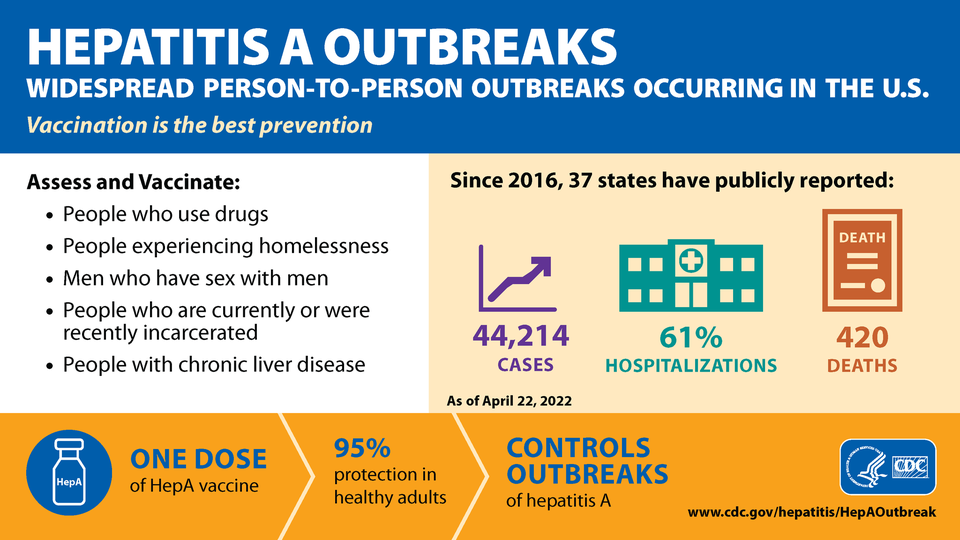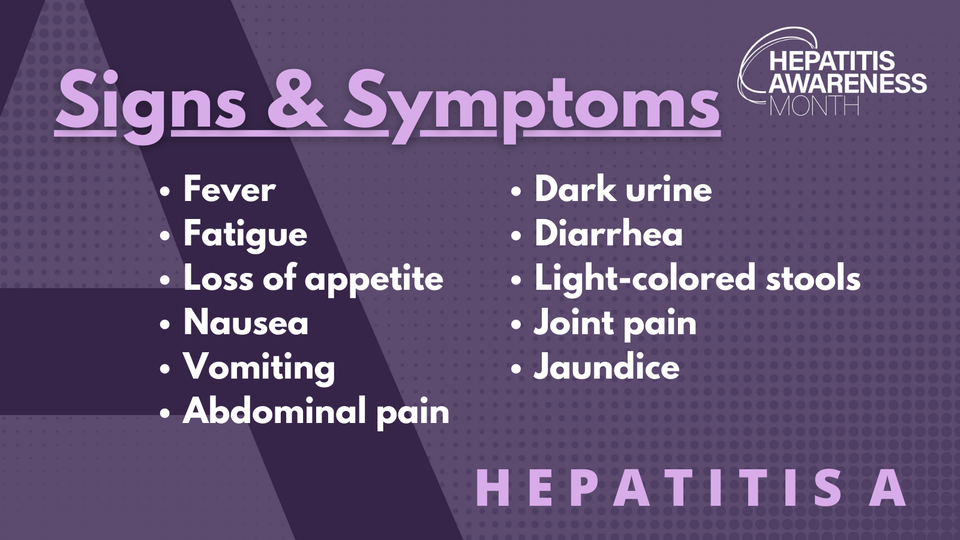Hepatitis A
Hepatitis A is a virus that causes liver disease. The virus is spread more easily in areas where there are poor sanitary conditions or where good personal hygiene is not observed. Most infections result from contact with a household member or sex partner who has hepatitis A. Casual contact such as in the office, factory, or school setting does not spread the virus.
What are the symptoms of Hepatitis A?
Hepatitis A - Vaccination is the best prevention

Hepatitis A Vaccine
- The hepatitis A (HAV) vaccine is licensed for use in the U.S. for people 1 year of age (12 months) or older.
- For persons, who may be at an increased threat of getting hepatitis A, it is suggested to get the hepatitis A vaccine. (Where there is not an ongoing HAV outbreak.)
- These persons include:
- All children ages 12-23 months,
- Children and youth ages 2-18 years of age, who have not gotten the hepatitis A vaccine,
- International travelers,
- Men who have sex with men,
- Persons who use illegal drugs (for both injection drug us and non-injection drug use),
- Persons with an increased work risk for being exposed (police officers, healthcare workers, paramedics, etc.),
- Persons who may have close personal contact with an international adopted child,
- Persons going through homelessness,
- Persons with chronic liver disease,
- Persons living with HIV,
- Persons who are pregnant at an increased threat of getting hepatitis A or severe outcome of HAV infection, and
- Any person who requests a vaccine.
- These persons include:
- For persons already exposed to the hepatitis A virus, immune globulin can be given. It must be given within two weeks of being exposed to the hepatitis A virus.
If you would like more information on hepatitis prevention efforts in New Hampshire, or data on hepatitis, please contact the programs.
Hepatitis Surveillance (Data) Program contact
- HIV/STI/VH Surveillance Program Manager
- 603-271-3932
Hepatitis Prevention Program contact
- Viral Hepatitis Prevention Program Coordinator
- 603-271-5982




